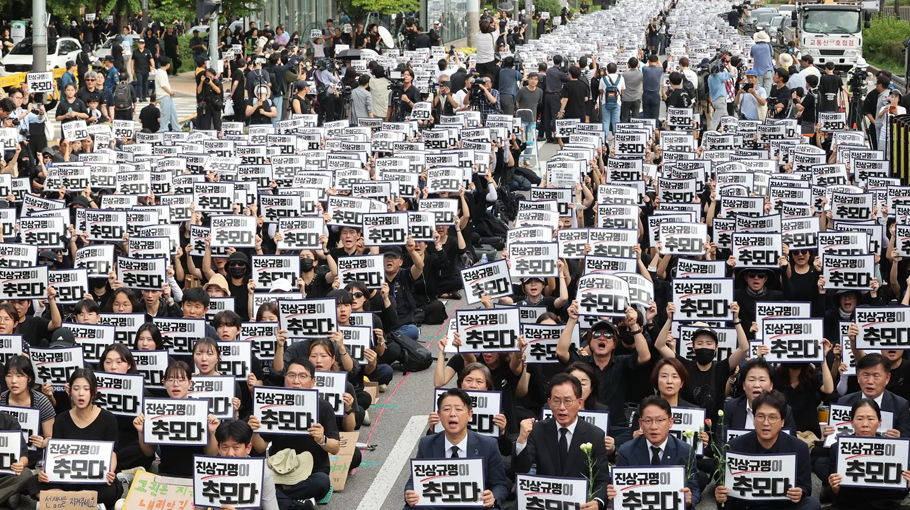South Korean educators want to teach parents a lesson

In 2011, former president of the United States Barack Obama lauded the South Korean education system, where teachers are seen as ‘nation builders’. Inspired by the commendable commitment and quality of educators in South Korea, this praise captivated many within the country.
But a decade later, the landscape is vastly different. Thousands of schoolteachers have rallied against the South Korean government following the tragic death of a young teacher in July 2023. Having recently been appointed to a primary school in an affluent part of Seoul, the late teacher found herself ensnared in a distressing situation involving a parent accusing her of child abuse. Several teachers across the country have taken their own lives due to conflicts with students and their parents.
In the aftermath of these incidents, teachers across the nation united. Unlike past protests, which were often orchestrated by teacher associations or labour unions, these demonstrations saw many teachers voluntarily participate, share information and gather regularly. Their demands centred around enhanced protection at their workplaces. They called for amendments to the Child Welfare Act and the ability to discipline students without fear of facing child abuse accusations.
About a month after the teacher’s death, the Ministry of Education released a set of legal amendment proposals to help alleviate teachers’ worries. The legislature is also swiftly enacting legal reforms to establish an improved foundation for teachers to educate their students with the confidence that they will be protected if any disputes arise.
In September 2023, the National Assembly unanimously passed legislative amendments that included provisions that restrict the dismissal of teachers without justifiable reasons if abuse allegations arise. It also included measures for parents who interfere with educational activities to receive special training, with fines imposed if they fail to comply.
Still, teachers continue to demand more concrete measures for protection, such as the ability to file criminal charges against parents if their child abuse report results in acquittal.
But what matters more is looking at the underlying causes that drove South Korea’s ‘nation builders’ to engage in this movement. This crisis has resulted from the long-standing clash between teachers’ rights to educate and discipline, students’ rights and parents’ rights to protect their children. In this dilemma, teachers have emerged worse off.
Over the last fifteen years, there has been a decline in public confidence in the country’s education system and private education has become increasingly popular.
As parents seek to give their children an advantage within an already competitive education culture, education has been transformed into a commoditised service. Teachers have become service providers and are even subjected to ratings by students and parents.
Parents who now typically raise only one or two children and as a result tend to overprotect their children, becoming extremely concerned if they believe their child has been unfairly treated by teachers.
Kyuseok Kim (Mick) and Eunyoung Shin are PhD students in the Department of Education at Korea University.
Source: East Asia Forum



